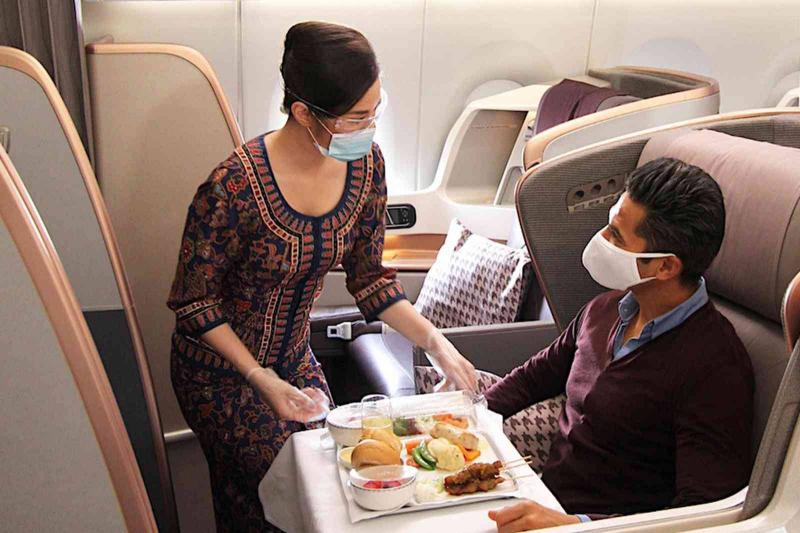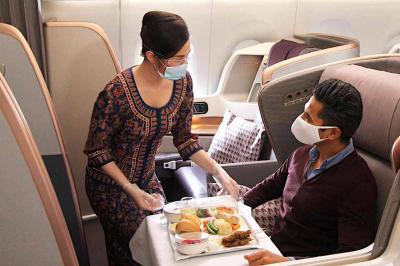A recent scientific study has revealed the real reason many people do not taste food while flying, which leads to the misconception that airlines provide poor-quality meals. The study, detailed on the "Sabq" news website and published in the "SAGE" scientific journal, explained that basic taste sensitivity decreases with altitude.
Additionally, it noted that taste buds and the sense of smell become less sensitive when flying at 30,000 feet. Humans can taste five basic flavors—sweet, salty, sour, bitter, and umami—using taste buds in the mouth, but once on a plane, all these factors change, affecting the ability to taste food.
The cabin of the airplane reduces humidity levels to around 12%, which is drier than most deserts. Even in the pressurized cabin, it is akin to standing at the summit of a mountain 2,500 meters high, and changes in altitude reduce pressure inside the cabin compared to standing on the ground.
The study confirmed that a combination of low humidity and low pressure affects the mouth due to reduced saliva flow, decreasing the sensitivity of taste buds by about 30%. It also pointed out that the nose plays a crucial role in tasting food since smell contributes to flavor; low humidity levels lead to nasal dryness, reducing the ability to detect odors.
Furthermore, the continuous noise from airplane engines, often exceeding 85 decibels, affects the tympanic nerve, which extends from the taste buds to the middle ear, further diminishing taste sensitivity due to the nerve's response to sound.
The study advised eating early after boarding the aircraft before dehydration increases and suggested using noise-canceling headphones to overcome the challenge of enjoying food flavors while flying.




